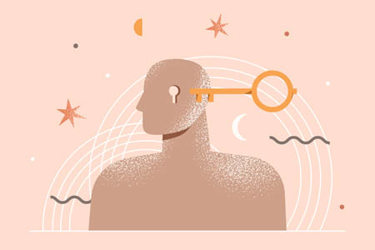Finding The Right Patients For Ketamine Clinical Trials
A conversation with Revitalist CEO Kathryn Walker

Ketamine can provide relief from mental health conditions in hours. Compare that with the weeks it may take other therapies, and the allure for both providers and their patients is clear. In fact, since the FDA first approved the use of the S-enantiomer of ketamine, esketamine, for treatment-resistant depression (TRD) in 2019, more than 230 clinical trials in the U.S. are now actively recruiting patients for ketamine trials, according to clinicaltrials.gov. Many of those aim to treat major depressive disorder and other mental health conditions.
Even with what seems like a warmer embrace of the psychedelic space (though some may argue ketamine is described more accurately as a dissociative anesthetic), the exploration of such treatments is not without challenges, including those related to patient recruitment and enrollment.
Revitalist CEO Kathryn Walker understands firsthand what constitutes an appropriate candidate for ketamine therapies. As the founder of the mental health and wellness clinic that specializes in esketamine treatments, as well as a certified registered nurse anesthetist (CRNA) and psychiatric mental health nurse practitioner (PMHNPS), Walker has insights into which patients are well-suited for trials exploring ketamine therapies, especially those for treating mental health conditions. Walker breaks down the criteria — and not just by diagnosis — that make the most suitable patients in the following Q&A.
In your experience treating patients at Revitalist, patients with which diagnoses are most suitable for and benefit most from ketamine therapy?
Ketamine therapies address an array of conditions that are primarily initiated in the brain. Patients with noted increased levels of inflammatory biomarkers are typically good candidates to consider ketamine therapies. Common conditions include depression, anxiety, PTSD, suicidality, fibromyalgia, complex regional pain syndrome, traumatic brain injury (TBI), insomnia, obsessive-compulsive disorder (OCD), autism, ADHD, and complex grief. Newer conditions that are being considered for ketamine therapies include neurodegeneration conditions such as ALS (Lou Gehrig’s disease), MS (multiple sclerosis), and Parkinson’s disease.
Now that we understand the suitability of particular diagnoses, let’s look more closely at the patient as a person. Are there certain demographics, backgrounds, or personality types that make someone suited for ketamine therapy?
This is a great question that often gets overlooked. Patients who have attempted other therapies (Western or Eastern therapies) inclusive of medications, psychotherapy, acupuncture, exercise, massage, natural medicines, etc., and have not received the results they expected would then be recommended for ketamine therapies. Ketamine therapies are a medical intervention that oftentimes inhibits the inflammatory cycle that often creates the havoc that we experience in our mental health and/or physical health.
Ketamine therapies allow us the ability to improve our emotional intelligence (EQ) on a granular, subconscious level, giving us the ability to decrease many of our external stressors. Our goal with ketamine therapies is to identify many of the factors that may cause our mental health or physical health to negatively cycle and effectively address them, allowing our inflammatory cycles to decrease and our coping mechanisms to increase.
These therapies can be used across a wide age range of individuals in a variety of demographic and socioeconomic statuses. We typically recommend these therapies for qualified candidates who are 12 years or older.
Personalities that typically need greater support for ketamine therapies are those with dissociative disorders, complex trauma, and borderline personalities.
Individuals who typically do very well with ketamine therapies are those with strong critical thinking skills or those who serve in multi-faceted roles that demand a variety of environments and decision-making skills. If someone hasn’t been in this type of environment, prep sessions with therapists and coaches can oftentimes build these skill sets, giving the individual an optimal mindset and setting for effective integration and optimization for effective symptom reduction (or, in many cases, symptom elimination).
Do you find that the general patient population understands ketamine therapy and how it works? And if not, what level of education is needed?
Unfortunately, most community members and a large percentage of medical providers and behavioral therapists do not understand how ketamine works, and many are extremely resistant when considering learning about these therapies.
The level of education that someone needs is a great question. Psychedelic medicine (including ketamine) is its own specialty. It takes a mix of empathy, ethics, pharmacology (pharmacodynamics as well as pharmacokinetics), basic life support skills — an additional plus would be advanced life support skills — and expert communication skills. Unfortunately, no profession has created the gold standard — and this is inclusive of every level of specialty, from community experts to specialists with medical and philosophical doctorate degrees.
I do believe that every person entering this specialty should consider didactic training, experiential sessions, and supervised residencies.
Even if patients are informed when it comes to ketamine therapy, hesitation to participate may still exist. What additional preparations or assurances must be made when it comes to treating a patient with ketamine?
Hesitation is something to accept when trying something new, especially when it comes to your mental or physical health conditions. Risks and benefits should always be considered before trying anything new in life.
Before starting with psychedelic therapies, a great recommendation would be to work with someone who has been trained in psychedelic medicine and understands the many variations of presentations that may become evident during the therapy. Each person discovers their ground truths with ketamine and psychedelic therapies, allowing an expansion of effective integration and coping mechanisms leading to comprehensive alignment (mental, spiritual, emotional, and even physical) to oneself. It’s a view that is very foreign for most as we are not encouraged to trust what we feel (though we may disagree with those feelings) — instead, in today’s society we view ourselves as “sick” or “ill.”
The insight from a professional coach, therapist, or provider who looks at the brain as a data center with circuits that are firing incorrectly instead of viewing it as an illness or a sickness allows the patient an empowered view when entering ketamine therapies.
When working with clients in this specialty, emphasis must be placed on preparing the patient on multiple levels including consideration of their physical, mental, emotional, and spiritual health. Many of these concepts are traditionally foreign in clinical studies, but they must be considered and structured to be inclusive of a study that is considerate of multi-faceted healing aspects. Professionals working in preparatory sessions with clients are intended to build rapport, support, trust and safety to patients entering the clinical trial. If one enters the space with a mindset of curiosity to identify complex patterns that lead to clarity then you will begin a journey of discovery of yourself and why imbalances exist, why overreactions occur, and why isolation patterns feel safe.
Ketamine therapies work on a variety of levels with consideration to improvement of anatomy, physiology, and psychology enmeshed with immune modulation, anti-inflammation, neuroregeneration, autoregulation, and integration. Recognizing the proper preparation of patients receiving effective support and integrative therapies is of great importance in this sector. One aspect to consider is the many ways neuroscience is evolving and unleashing many theories that are disrupting the way neuroscience has traditionally been viewed. One common concept is considering that the brain does not know right from wrong; it is all based on the way it was trained (in a subconscious, not conscious mindset). If we are trained in an abusive environment, the brain will be trained to expect abuse and ways to protect itself. If we are trained in an overly critical environment, our brain will learn to become overly critical, making us feel that we are never good enough. While examples like these seem routine and often overlooked or viewed as PTSD or OCD, these are subconsciously learned patterns that we must break in order to heal. Ketamine therapies allow this to occur.
So, my six top things I encourage patients to consider is:
- Do you feel safe? How do you communicate safety to others?
- Do you feel loved? What is your love language to others?
- Can you trust the environment you are in? How can others trust you?
- What are your core values?
- What are your core virtues?
- What are your core ethics?
If you can discover these personal language styles and personal pillars, you will begin to build a base that allows patients to grow in the direction of psychological evolution that they are seeking ultimately improving their emotional intelligence (EQ) and allowing for effective integration with their intelligence quotient (IQ).
Once a patient is enrolled in a study, what efforts must be made to ensure the patient remains enrolled? Are there any accommodation needs that are especially different than those for trials not studying psychedelics?
Patients enrolled in a psychedelic medicine trial have to feel comfortable with the practitioners and the environment where the study is taking place. Ketamine and psychedelics act as catalysts, placing the patient in a present state of mind. During this state of mind, mental health symptoms or pain symptoms are nonexistent, leading to a truly vulnerable state. This state of mind is where the patient truly begins to heal.
Patients must be supported physically, emotionally, spiritually, and mentally with sound ethical standards while also empathetically connecting with the patient using communication styles that are most applicable to that individual. Patients oftentimes need assistance to restrooms during the sessions — a sound understanding of walking assistance with a psychologically altered individual and understanding potential triggers of touch should be part of the entire process. Physical accommodation recommendations include soft lighting, comfortable oversized furniture, journaling tools, fluid music, and the option of wearing eye masks and/or earplugs.
About The Author:
 Kathryn Walker is a subject matter expert with ketamine therapies and has been involved in over 15,000 patient sessions. Kathryn is dually trained as an anesthesia provider as well as a psychiatric provider. Kathryn is the founder of Revitalist Lifestyle and Wellness and currently serves as the CEO. She also works closely with Revitalist’s partner company, Wake, where she participates as a lead medical and behavioral provider at international psilocybin retreats.
Kathryn Walker is a subject matter expert with ketamine therapies and has been involved in over 15,000 patient sessions. Kathryn is dually trained as an anesthesia provider as well as a psychiatric provider. Kathryn is the founder of Revitalist Lifestyle and Wellness and currently serves as the CEO. She also works closely with Revitalist’s partner company, Wake, where she participates as a lead medical and behavioral provider at international psilocybin retreats.
